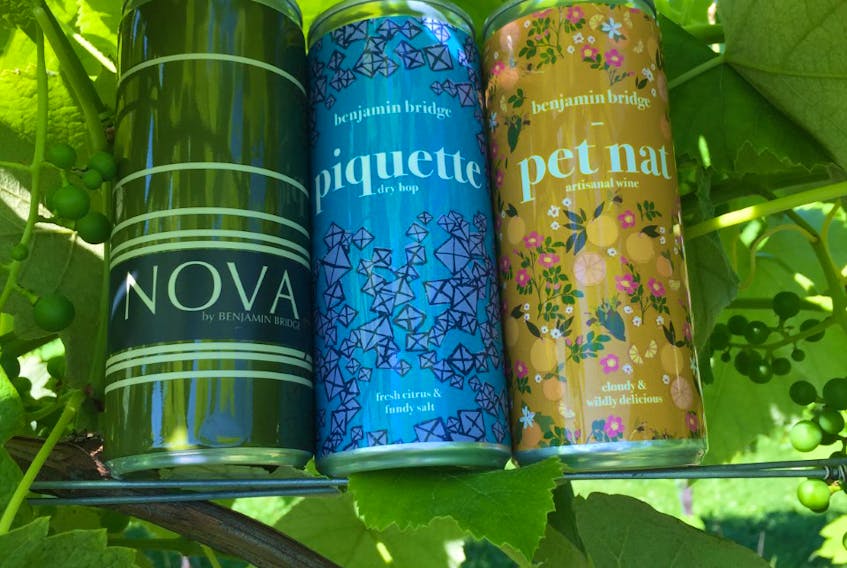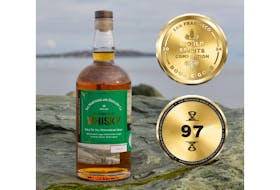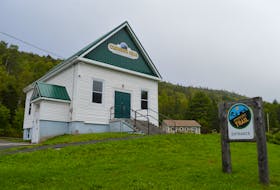Normally, one of the perks of being a winemaker in the tight-knit Nova Scotia wine community is that you get the inside scoop on new products, and also get to drink them.
Not so with Piquette from Benjamin Bridge, 20,000 single-serve cans of which have sold in the province in the last four weeks.
“None of us knew this product was coming, they kept it so secret,” said Mike Mainguy, winemaker at Luckett Vineyards.
“All of a sudden it was released, so I got to try it when everybody else did.”
Normally, the release of a Benjamin Bridge wine that sells well is not newsworthy. But technically speaking, Piquette is not really a wine but rather a wine refresher or a wine beverage, with a history that goes back hundreds of years.
“The roots are as democratic and as humble as it gets,” explains Jean-Benoit Deslauriers, winemaker at Benjamin Bridge.
“French winemakers wanted to supply their vineyard workers with something to drink . . . but they couldn’t spare the wine. So, what they did is take the grape skins coming out of the press, they added water and fermented it, so it became not a wine but a wine beverage.”
The Piquette that’s becoming very rare on store shelves is made from the 2019 vintage of Ortega, Muscat and Sauvignon Blanc grape skins, chosen for the aromatic compounds contained in those skins.

“Piquette is a thing of beauty in its ability to reconcile two things that were formerly two solitudes, almost impossible to bring together . . . artisanal practices with economy price points,” Deslauriers said.
“What Piquette does is bring the two together, because you’re using the winemaking byproduct to create the wine beverage, but with the same terroir-driven fruit material, the same practices, the same approach and rules, the same values of low intervention.”
Benjamin Bridge’s Piquette comes in at seven per cent alcohol, and also includes Citra hops from Horton Ridge, just down the road, and flakes of sea salt from the Annapolis Salt Company
“We wanted to explore the salinity, especially on the finish,” Deslauriers said.
“What I mean by that is almost like the same electrolyte-like finish that we would find in a Gatorade. There’s a blend of citrus and salinity on the finish.”
The new Dartmouth bar Dear Friend ordered three cases of Piquette when it opened a couple of weeks ago and has hardly any left.
To make life easier for licensees like that, BB is about to release Piquette in one-litre crowlers (a mashup of can and growler), which, to Deslauriers’ knowledge, will be unique.
“I’m not aware of any wines anywhere that would have been put in a crowler before.”
One thing winemakers like about putting wine in cans as opposed to bottles is that cans are much more sustainable, and the whole process creates a much smaller carbon footprint.
Another thing they like is that cans are selling like crazy.
Benjamin Bridge released 200,000 cans of Nova 7, and its pétillant natural, or pét-nat, is sold out, except for what’s available in sampler packs.
NSLC figures for the fiscal year that ended March 31 show that sales of canned wines amounted to $483,994, of which $223,922 was generated by local products. Those figures don’t reflect the introduction of Piquette.
The first Nova Scotia winery to put wine in cans, about two years ago, was Luckett Vineyards. Mainguy says the wine, called Hair of the Dog and named after three Luckett family dogs, was the brainchild of Geena Luckett.
It sold as soon as it was released.
“We had a feeling it would because we were seeing that trend on the west coast, certainly in California,” Mainguy said.
“We made it and it was a big hit internally, within the winery. (At first) we didn’t sell it at the liquor stores or anything, just at the winery, and it went really quick.”
Hair of the Dog, “a spritzy rosé, really light, dryish,” is based on L’Acadie Blanc, with some Leon Millot added, and is 11 per cent alcohol.
Mainguy thinks wine in a can is a trend that’s here to stay. He said the wine industry has learned creativity in labelling and lack of pretension in packaging from the craft beer and ready-to-drink segments.
He’s doing a run this week of about 4,000 cans, with a few more runs planned for this year.
“The NSLC is asking for more,” he said.
“We’ve been out for a couple of weeks.”
Devonian Coast, the umbrella for Gaspereau, Mercator and Jost wineries, produces three varieties of canned wine: Sparkling Rose, Muscat and Mint, and L’Acadie Pinot Grigio.
Gina Haverstock, the director of viticulture for Devonian Coast, said the idea started coming together last summer, and that the wines are purposely different.
L’Acadie Pinot Grigio is a blend she uses in various formats and wanted to put in a can. Muscat and Mint is a low-alcohol spritzer, while the rosé is 11 per cent and sparkling. They’re not designed for any certain group, she said.
“It’s aimed more at a time, this time when people like to have individual servings, it’s more mobile and it’s more about that than being aimed at any particular demographic. We want everyone to drink it,” Haverstock said of Luvo, available at NSLC stores and at Jost, Gaspereau and Mercator.
“We’re really happy with the way it’s selling.”









